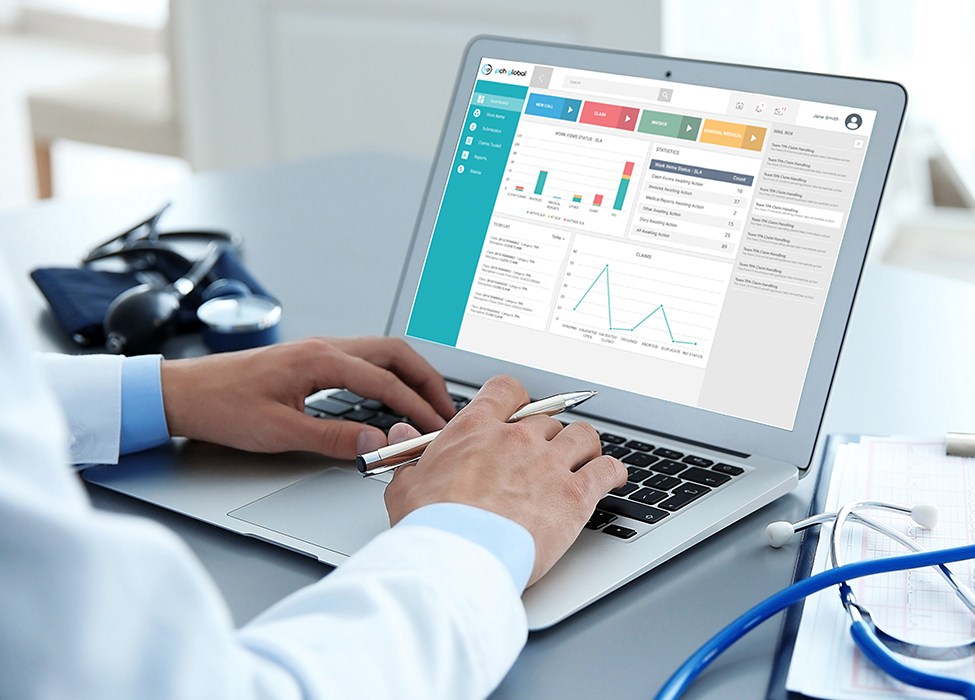Modernizing Claims Adjudication with the Right Strategies and Technology

In the rapidly evolving healthcare landscape, "claims adjudication" is a term that carries significant weight. As a crucial link between healthcare providers, patients, and insurance companies, claims adjudication ensures that medical bills are accurate and that reimbursements are appropriately dispensed. With the confluence of modern technology and strategic approaches, the process of claims adjudication is undergoing a significant transformative phase.
The Necessity of Modernizing Claims Adjudication
Claims processing, in its traditional sense, has been fraught with challenges. One primary issue is the high volume of claims, which can be overwhelming and lead to errors and delays if not managed effectively. Coupled with this, manual claims processing methods can be time-consuming and susceptible to human error, resulting in incorrect payments or denied claims. Further, intricate healthcare regulations and continually changing coding standards compound the complexity, making it difficult to maintain accuracy and compliance.
By modernizing claims adjudication, payers can not only streamline their workflow but also significantly enhance accuracy, speed, and customer satisfaction. With the current workforce shortage and rising inflation costs, it’s becoming necessary to optimize workflows wherever possible.

Revamping Claim Adjustment with Technology and Outsourcing
Technology plays a pivotal role in transforming the claim adjustment process. Cutting-edge solutions like AI and machine learning can automate many routine tasks, significantly reducing human error. They can analyze vast amounts of data quickly and accurately, spotting anomalies that could indicate errors or potential fraud.
Moreover, digital platforms can integrate multiple data sources, providing a unified view of claim information. This integration enhances accuracy during the medical bill review process, resulting in more efficient claims adjudication.
In the midst of the ongoing workforce shortage, payers are finding it increasingly difficult to maintain an efficient and effective in-house team for claims adjudication. Staffing issues not only create bottlenecks in the claims processing pipeline but also stretch resources thin, leading to mistakes and inefficiencies. Outsourcing claims adjudication presents a viable solution to this challenge.
By partnering with specialized service providers, payers can leverage the expertise of trained professionals who can effectively manage the complexities of claims adjudication. This not only alleviates the burden on in-house teams but also allows for increased focus on core business functions.
Outsourcing also brings with it the benefits of advanced technology and automation capabilities that these specialized firms possess, enabling a faster, more accurate, and cost-effective adjudication process. As a result, outsourcing claims adjudication is increasingly emerging as the strategic choice for payers seeking efficiency, accuracy, and scalability.

Strategies to Implement
For an optimized claims adjudication process, payers can incorporate a variety of strategies. Firstly, leveraging technology such as AI and machine learning can automate routine tasks, reducing manual errors and speeding up the process. We’ve already mentioned this so let’s move onto the next strategy.
Secondly, regular audits can help ensure ongoing accuracy and compliance. These audits can identify systematic issues early, allowing for proactive resolution. Thirdly, investing in staff training is crucial. Well-trained staff can better navigate the complexities of healthcare regulations and coding changes, and apply appropriate processing rules by each line of business, resulting in more accurate claim processing. Alternatively, it may be worth looking into and prioritizing outsourcing.
Lastly, a clear communication strategy can enhance transparency in the process. By keeping all stakeholders informed throughout the claims process, payers can foster trust and build stronger relationships with both healthcare providers and patients. In summary, a combination of technology, regular auditing, staff training, and clear communication can significantly optimize the claims adjudication process.

Enhance Your Claims Adjudication Workflow with Exela
With over 20 years of experience and over 24 million claims edited and adjudicated annually, Exela understands and overcomes the challenges and obstacles of claims adjudication. We combine experts with technology to deliver a streamlined Claims Adjudication solution that scales to your needs, improves turnaround times, and provides a skilled team. Our workforce management team forecasts the volume and monitors the availability of the resources based on your requirements, providing continuous learning, cross-skilling and upskilling of the workforce while recruiting and training resources. Regardless of the change in claims volume, you have the resources ready at your disposal.
With extensive training, we ensure that our team has a wide variety of claim-type expertise giving them experience in end-to-end payer services. To make sure your company meets compliance standards, we provide a dedicated subject matter expert team that continually monitors changes in regulations that impact claims processing rules. Any change in regulation or payer policies is updated on our training and reference materials and delivered to our teams.
To help streamline the adjudication process, we supply a custom-built automation solution that simplifies workflows by taking over repetitive manual processes. The software tracks data from various systems making it easier to review the data and facilitate accurate and quick decisions. With the combination of our proprietary technology and our expert team, you experience lower costs, faster delivery, and improved reliability and productivity.
Take a Step into a More Modern Process
The road to modernizing claims adjudication is not without its challenges. However, with the right blend of technology and strategy, payers can streamline their claims processing and enhance their claims adjustment capabilities. With Exela’s long-standing relationships with large commercial payers and over 1,000 specialists, we have the expertise, consistency, and ability to unfailingly adapt to industry changes. Let us help you experience a modernized claims adjudication process that will provide enhanced efficiency, accuracy, and cost savings. Learn about our Claims Adjudication services today!










